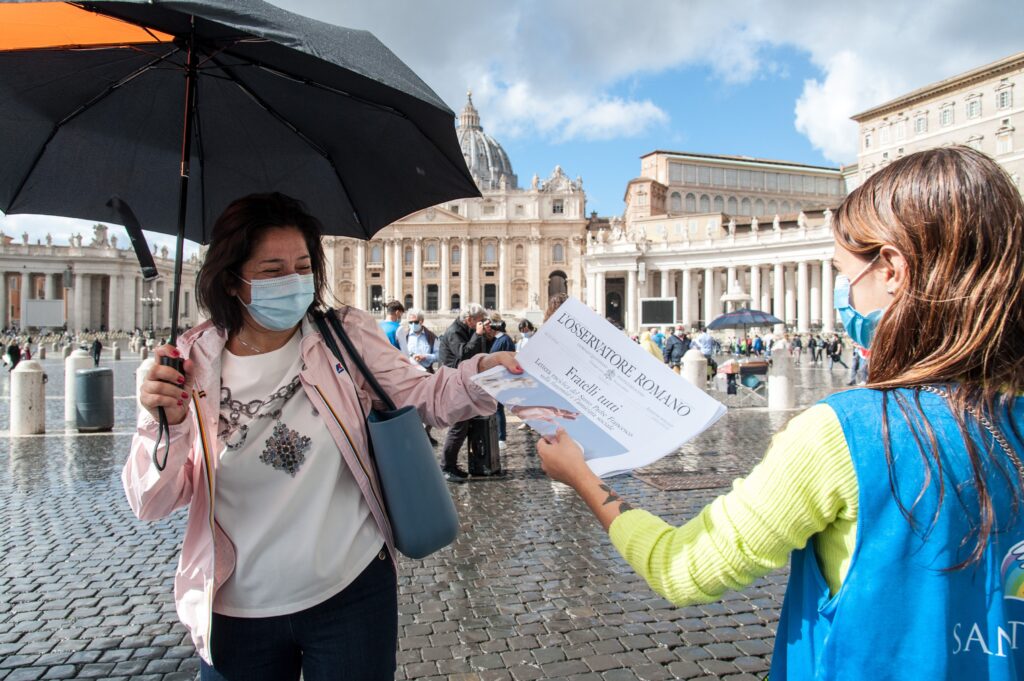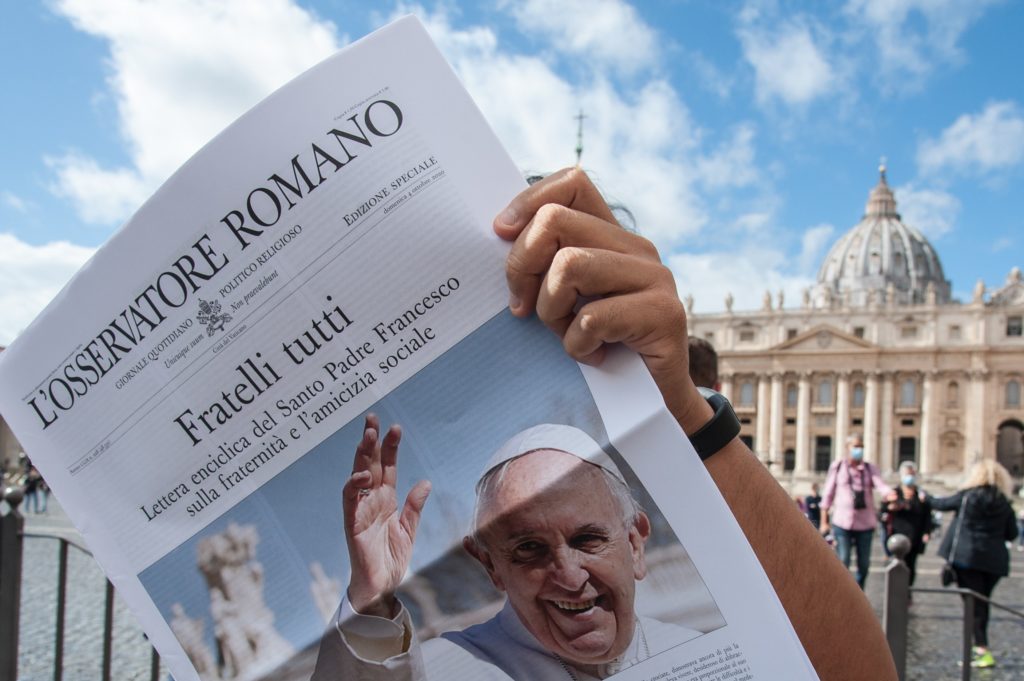Reading the text of the encyclical Fratelli tutti Pope Francis, I was struck by three words in particular.
The first is the complexityThe Pope Francis enters into this concept: not understood in a mechanical sense, but as a series of phenomena that concern mankind. complexity that characterizes man by examining all the issues and implications that have to do with the life of each one of us and our relationship with the life of others.
The second word is actionWe must take care of it! Each one of us, with our competences and according to our responsibilities, must try to to give light to this world full of situations that need to be reviewed and updated. This actionin my opinion, is about community (governments and nations must do this) and individual responsibility. to which every individual of good will is called. On the other hand, this is the meaning of the encyclical: a circular letter that is not only for the Church, but is addressed to all those who look at the world with perspective.
The third word is dreamDream with hope, we can do it!
Common good
This encyclical is an excellent vademecum that sums up the Church's vision of the common good. It is no coincidence that it is labeled "social", because summarizes the Social Doctrine of the Church with references also to earlier Magisterium (Deus caritas est of Benedict XVI and Centesimus Annus of John Paul II) and in continuity with the latter. I would advise everyone, both heads of state and government and all citizens, to read it; not so much as a matter of adherence to the principles of faith, but rather by the desire to build a better society.
Communication and dialogue
To quote John Paul II, if I had to summarize in one title the Fratelli Tutti, would use his famous expression addressed to Roman citizens: Damose da fa' ("Let's get going" in Roman dialect). It is a call to action, because the world is succumbing to so many situations and it is up to us to change it: let's get moving!
Already in the Christus vivitdedicated to young people, Pope Francis invites us not to reduce communication to a tool, but rather to make ourselves communicationbecause deep down we are.
This encyclical outlines, in my view, the element of the dialogue. There is a revolution of intention with respect to this word: dialogue also takes into account what the other has to say and what can help me to better understand the world. This is a fundamental aspect, which should encourage us to to initiate these paths of relationship with others and at the same time overcome all the bad uses of the network: avoid monologues by seeking from the other something useful for me and for society as a whole.

The Gospel proposes a key word: love. Love, not understood as pure sentimentality, but as a to be a neighbor to those close to us as well as to those who live in situations far from our comfort zone. This is the key to changing the world: the Church has been teaching this for 2000 years and in this encyclical the method is offered in the second chapter with the parable of the Good Samaritan.
We must care for those to whom we would not give credit in the first place.This is what the Good Samaritan does.
(You can also read here the analysis by Ramiro Pellitero of the Encyclical Fratelli Tutti that we offered on the day of its publication).








